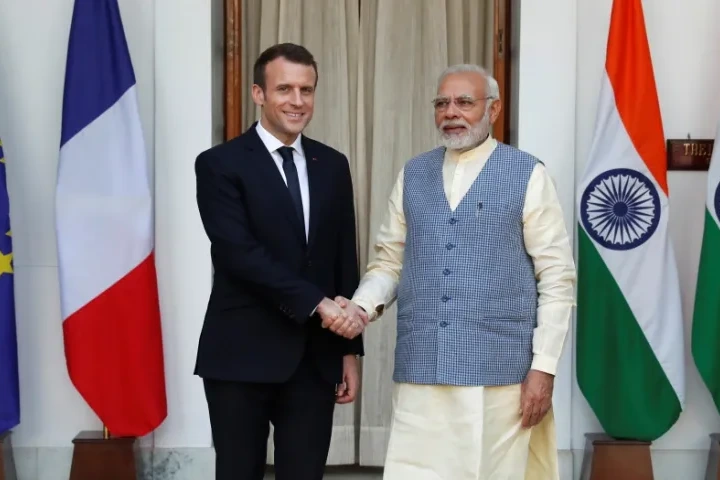In July last year, the Center for Strategic & International Studies authored a study titled France and India: Two Nuances of ‘Strategic Autonomy’. The opening line of the study quoted a former Japanese deputy national security adviser as saying: “We know India will be a very difficult superpower – like a big France.”
In fact, France, although a member of NATO and the European Union, takes pride in being a “free thinker”, developing its own outlook on global issues. India, not constrained by any alliance, values its freedom for manoeuvre in the international system and shapes its own choices.
Both prize their “strategic autonomy” or as President Emmanuel Macron put it, Paris is “allied, but not aligned”, while Dr Jaishankar emphasises something similar: “India is entitled to have its own side”.
Some of these sentiments will be on display over the next two days as Narendra Modi plays host to his Republic Day chief guest Macron on Friday, but not before treating him to a roadshow in Jaipur on Thursday. Important to note that France, while a steady and reliable diplomatic and military partner for India, is not “New Russia”.
Moscow brings far greater clout to the table, whether in terms of its ability to play the international system, its vast resource rich landmass that has made it a key player in the world energy matrix, its Eurasian roots, and even defence where it continues to hold its own as the Ukraine war has shown.
France is a smaller less visible player but its Indian Ocean territories give it huge stakes in this region. Its sophisticated defence industrial base holds enormous attraction for India which is banking on Paris to help develop technological capacities in jet engine design, also helicopter engines, small and advanced modular nuclear reactors and so on.
The two leaders who met in Delhi at the G20 summit in September 2023, will have time and opportunity to discuss progress in the above. Macron may seek faster movement on the Indian Navy’s procurement of 26 Rafale Marine fighters. The Indian Air Force is also looking at growing the size of its two-squadron Rafale fleet by at least two squadrons more.
Regional and international issues may dominate. As Dr C Raja Mohan notes in an editorial in the Indian Express, the Gaza War has the potential to spill over into something far larger and more damaging to the world; then there’s the prospect of Donald Trump returning to the White House after elections this December.
While Trump will turn up the heat on China, his known distaste for alliances including Nato run the risk of upsetting the global balance of power. He may seek renegotiation of the terms of engagement with Europe and Asia. India will also be affected despite Modi having a decent relationship with Trump. Add to that his insistence on “America First”.
Modi-Macron are expected to review the roadmap for the next 25 years laid out in the Horizon 2047 document agreed upon in July last year. For instance, the Indo-Pacific is a major concern for both: France’s Indian ocean territories are vast making it a power in this region while for India, it is China’s maneuvers to take control of strategic waters. Through an Indo-Pacific Triangular Cooperation Fund, both are trying to help scale up green technologies in a region desperate for transparent and viable funding.
A bilateral space dialogue is looking at collaboration in commercial launch services, launchers and manned flights. Also cooperation in fighting terrorism and organized crime. The agenda is vast, and whether in Jaipur or Delhi, Modi-Macron can be expected to push it forward.




















